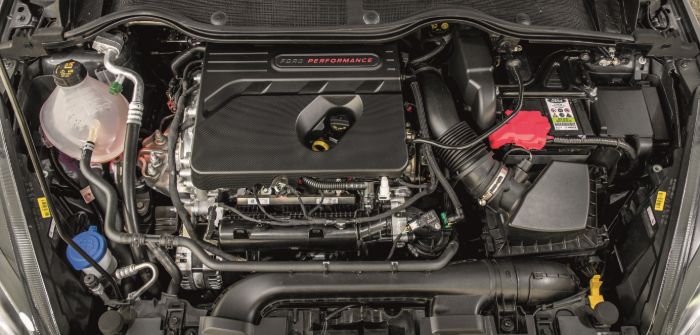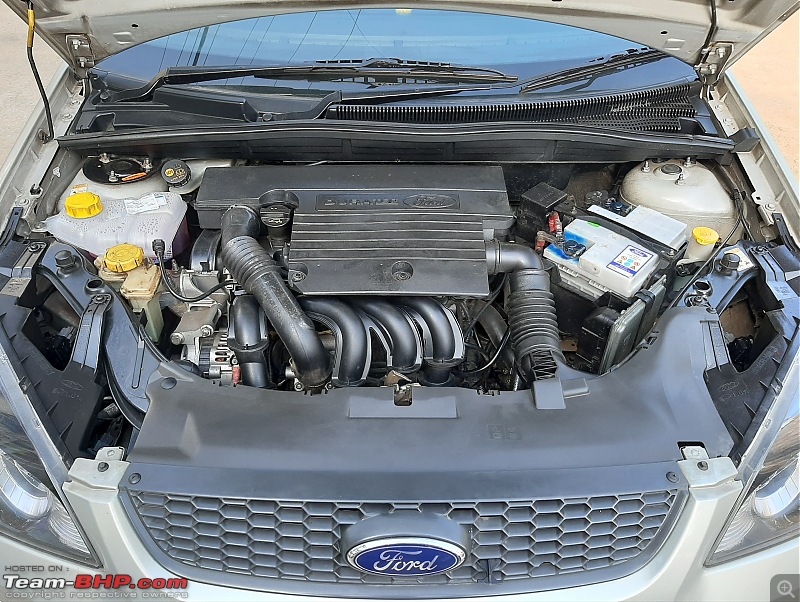How to Diagnose Ford Fiesta Engine Issues and Prevent Future Problems
How to Diagnose Ford Fiesta Engine Issues and Prevent Future Problems
Blog Article
The Future of Engines: Developments Driving Lasting Power Solutions
As the automobile sector navigates the important change towards sustainability, the future of engines is increasingly defined by groundbreaking innovations. Electric engine developments, along with promising growths in hydrogen gas cells and biofuels, are reshaping the landscape of power remedies. The introduction of hybrid systems additionally complicates this advancement, presenting both difficulties and chances to lower emissions successfully. Paired with the integration of man-made knowledge in engine design, these technological strides elevate crucial concerns concerning their lasting viability and influence on typical paradigms. What might this indicate for the sector and customers alike?
Electric Engine Dope
The advancement of electrical engine growths indicates a crucial change in the aerospace and automobile industries, driven by the urgent need for sustainable options to nonrenewable fuel sources. This shift is defined by significant developments in battery technology, power electronics, and electrical motor layout, which jointly improve the efficiency and performance of electrical engines.
Current innovations have actually led to the development of lighter, a lot more energy-dense batteries, such as lithium-silicon and solid-state batteries, which guarantee longer varieties and shorter charging times. In addition, renovations in electric motor efficiency, such as using irreversible magnets and progressed cooling systems, make it possible for electrical engines to operate effectively under differing conditions. These enhancements not just enhance car efficiency however also add to a decrease in overall power usage.
Furthermore, the integration of innovative software application algorithms has actually enhanced power administration in electric automobiles, enabling regenerative stopping and predictive billing methods. As producers significantly accept electrical propulsion, the aerospace and automotive markets are witnessing a standard shift in the direction of greener innovations. This evolution not just satisfies regulatory needs however additionally straightens with consumer preferences for eco friendly transportation remedies, solidifying electric engines as a keystone of future sustainable movement.
Improvements in Biofuels
As the automobile and aerospace sectors progressively focus on sustainable energy resources, advancements in biofuels become a corresponding service to electrical engines. Biofuels, derived from natural products such as plants, waste, and algae, present an ingenious method for reducing greenhouse gas emissions and reliance on fossil gas.
Current study has actually concentrated on enhancing the effectiveness and sustainability of biofuel manufacturing. Second-generation biofuels make use of non-food feedstocks, decreasing competition with food supply and decreasing environmental effect. Moreover, improvements in artificial biology have actually made it possible for the design of microorganisms to generate biofuels better, bring about greater returns and reduced manufacturing expenses.
In addition, the advancement of drop-in biofuels permits seamless combination into existing infrastructure, enabling a smoother transition for industries generally reliant on fossil gas. ford fiesta engine. These gas can be utilized in present engines without adjustments, facilitating their adoption throughout numerous fields
Investments in biofuel technology, in addition to supportive plans, are important to drive development and scalability. As the international neighborhood looks for to fight climate adjustment, biofuels use a pragmatic, immediate remedy that lines up with the overarching goal of sustainability in transport and air travel.
Hydrogen Fuel Cell Modern Technology
An expanding variety of researchers and firms are discovering hydrogen fuel cell modern technology as a feasible alternative to standard power resources in transportation and power systems. This technology transforms chemical power from hydrogen into electricity via an electrochemical reaction, with water as the only byproduct, making it an ecologically pleasant choice.
The core of hydrogen fuel cells is the gas cell stack, where hydrogen molecules are divided into electrons and protons. The flow of electrons produces electrical power, while protons relocate through a membrane to incorporate with oxygen from the air, developing water. This procedure leads to high efficiency and low exhausts, positioning hydrogen gas cells as a crucial gamer in the transition to lasting energy.
Substantial developments have actually been made in enhancing the sturdiness and efficiency of gas cells, together with reducing prices with cutting-edge manufacturing strategies. In addition, the development of hydrogen production methods, such as electrolysis powered by eco-friendly power sources, improves the sustainability of the general system. As infrastructure for hydrogen refueling expands and production techniques come to be extra efficient, hydrogen fuel cell innovation holds fantastic guarantee for decarbonizing different markets, consisting of sturdy transportation and fixed power generation.
Crossbreed Equipments and Their Influence
Hybrid systems stand for a substantial advancement in lasting engine innovation, merging traditional inner burning engines with electrical propulsion to optimize energy efficiency and reduce exhausts (ford fiesta engine). This double technique allows vehicles to make use of both power resources, allowing greater adaptability in power consumption and reducing dependence on fossil gas

In addition to ecological benefits, crossbreed systems offer consumers a viable change towards completely electric cars. They reduce array stress and anxiety by incorporating the benefit of fuel with the advantages of electrical propulsion, making them an appealing option for a bigger target market.
The Function of AI in Engine Design
Leveraging advanced formulas and equipment knowing strategies, the automotive market is significantly integrating synthetic knowledge (AI) right into engine design processes. AI improves the see post performance and performance of design by examining substantial datasets to identify optimal setups and efficiency criteria. This capacity allows engineers to replicate numerous operating conditions and anticipate engine actions under multiple situations, significantly decreasing the time and expense linked with typical prototyping methods.
Additionally, AI promotes the growth of advanced materials and burning processes tailored for sustainability. By enhancing fuel effectiveness and reducing discharges, AI-driven designs line up with global initiatives aimed at minimizing the carbon impact of automotive engines. Artificial intelligence algorithms can additionally predict maintenance requirements, resulting in enhanced reliability and long life of engine parts.
Additionally, AI contributes in the combination of electrification modern technologies, such as crossbreed systems, where it can maximize battery administration and power recovery procedures. As the industry moves in the direction of even more sustainable power options, the function of AI in engine design becomes significantly essential, driving advancement and improving the performance of future engines. Inevitably, the partnership between AI and engine layout declares a new period of smarter, cleaner, and much more efficient vehicle innovations.

Verdict
To conclude, the future of engines is being shaped by a merging of cutting-edge technologies that prioritize sustainability. Electric engine advancements, biofuel advancements, hydrogen fuel cells, and crossbreed systems jointly add to a substantial decrease in exhausts and ecological influence. Additionally, the integration of expert system in engine style improves effectiveness and performance. These transformative options emphasize a commitment to creating a cleaner, much more sustainable automobile landscape, ultimately benefiting both society and the environment.
Electric engine advancements, alongside encouraging growths in hydrogen fuel cells and biofuels, are reshaping the landscape of power solutions. In addition, enhancements in electric motor efficiency, such as the usage of long-term magnets and advanced cooling down systems, allow electric engines to run successfully under varying conditions. By maximizing fuel effectiveness and reducing emissions, AI-driven designs line up with global campaigns intended at decreasing the carbon impact of vehicle engines. As the industry relocates towards try this out even more sustainable power solutions, the function of AI in engine design comes to be progressively vital, driving advancement and improving the efficiency of future engines. Electric engine developments, biofuel developments, hydrogen fuel cells, and crossbreed systems collectively add to a considerable decrease in emissions and ecological impact.
Report this page